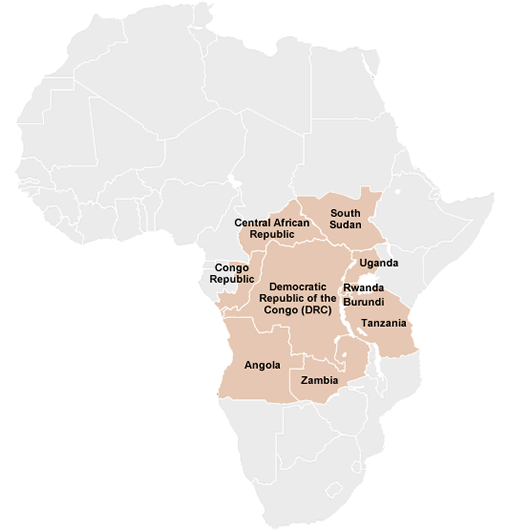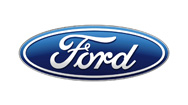Conflict Minerals
On this page
Conflict Mineral Reporting Requirements
On August 22, 2012, the U.S. Securities and Exchange Commission (SEC) adopted final rules to implement reporting and disclosure requirements concerning Conflict Minerals, as directed by Section 1502 of the Dodd-Frank Wall Street Reform and Consumer Protection Act of 2010. These rules require manufacturers that file certain reports with the SEC to disclose in a new “Form SD” filing whether the products they manufacture or contract to manufacture contain Conflict Minerals that are “necessary to the functionality or production” of their products – and, if so, whether these materials can be declared “conflict free.”
“Conflict Minerals” currently include cassiterite, columbite/tantalite, and wolframite (the most common derivatives of which are tin, tantalum and tungsten, respectively) as well as gold, regardless of where these minerals are mined, processed or sold. (The U.S. Secretary of State may designate other minerals in the future.)
The requirements regarding Conflict Minerals were enacted to further the humanitarian goal of ending violent conflict and human rights abuses in the Democratic Republic of the Congo and surrounding countries (referred to as the Covered Countries [see map below]), which have been partially financed by the exploitation and trade of Conflict Minerals. We believe that the ultimate goal of Section 1502 is for all SEC filers to be able to certify that all Conflict Minerals from Covered Countries which are contained in products they manufacture or contract to manufacture have come from smelters and refiners identified as “conflict free” through the Conflict-Free Smelter assessment program (details at www.conflictfreesmelter.org). Ford supports the humanitarian goal of ending violent conflict and human rights abuses.
Starting in May 2014, Ford will be required to report annually to the SEC whether our products that contain Conflict Minerals are “conflict free.” All suppliers globally that provide parts contained in Ford vehicles, service parts, or other parts sold by Ford are required to support this effort. Specifically, suppliers will be required to respond to an annual survey to identify whether products they manufacture or contract to manufacture for Ford contain any Conflict Minerals necessary to the functionality or production of their products. If any Conflict Minerals are contained in the affected product supplied to Ford, the supplier will be required to determine the country of origin of these materials and whether the Conflict Minerals can be identified as “conflict free,” and to report this information to Ford.
Each supplier is likely to receive similar requests from multiple customers. Ford has been working closely with the Automotive Industry Action Group (AIAG) and our original equipment manufacturer (OEM) and Tier 1 colleagues to ensure maximum consistency (and minimum duplication of effort) in the reports requested from suppliers. We have recommended that our suppliers enroll in an AIAG training session to learn how to prepare and submit a report to disclose their companies’ use of Conflict Minerals. We also have recommended that our suppliers refer to the Organisation for Economic Co-operation and Development (OECD) guidelines on Conflict Minerals whenever sourcing Conflict Minerals from Covered Countries.
Covered Countries for Conflict Minerals
 Angola, Burundi, Central African Republic, Congo Republic, Democratic Republic of the Congo (DRC), Rwanda, South Sudan, Tanzania, Uganda, Zambia
Angola, Burundi, Central African Republic, Congo Republic, Democratic Republic of the Congo (DRC), Rwanda, South Sudan, Tanzania, Uganda, Zambia
Ford’s Conflict Minerals Due Diligence Process
The OECD provides practical guidance to companies throughout the supply chain on a set of actions that can be taken to ensure responsible due diligence. Ford has found the OECD’s guidance to be particularly useful in designing our own due diligence processes. We are currently working through the OECD’s five-step process as part of our compliance efforts.
OECD Five-Step Process
- Step 1:Establish strong corporate management systems
- Step 2:Identify and assess risk in the supply chain
- Step 3:Design and implement a strategy to respond to identified risks
- Step 4:Third-party audit of smelters’/refiners’ due diligence practices
- Step 5:Report annually on supply chain due diligence and outcomes
Ford’s Actions to Date
- Step 1: Assigned accountability and cross-functional team; revised policy and supplier guides to address conflict mineral issues
- Step 2: Requiring supplier material content reporting and assigning prioritization of suppliers based on declared content
- Step 3: Balanced strategy of Ford and industry action to ensure robust sourcing policies, practices and reporting
- Step 4: Participation in the conflict-free sourcing program through the AIAG
- Step 5: Public disclosure in this Sustainability Report and planned SEC filing for 2013 calendar year
Multi-Stakeholder Collaboration
- OECD: Ford provided input into the creation of the OECD Due Diligence Framework and participated directly in the pilot implementation phase with the OECD as well as indirectly through the AIAG.
- Public–Private Alliance: Ford participates in the Governance Committee for the Public Private Alliance for Responsible Minerals Trade.
- Multi-Stakeholder Initiative: Ford participates in the multi-stakeholder group of investors, companies and NGOs to explore common positions and advocate realistic solutions to the Conflict Minerals challenge.
- AIAG: Ford participates in the Conflict Minerals Workgroup at the AIAG, which pursues common solutions for the automotive industry.
- Ford’s actions
- +
- Industry Collaboration
- =
- Greater Global Impact
Establishing Corporate Management Systems
Ford has established a cross-functional team to address the challenge of Conflict Minerals in the supply chain. This team is led by our Supply Chain Sustainability function within Global Purchasing and is supported by Ford departments including Product Development, Materials Management, Corporate Sustainability, Finance, Government Affairs, Public Affairs and the Office of the General Counsel. The Purchasing organization has the primary responsibility for working with suppliers to obtain information on parts that may contain Conflict Minerals, as well as tracking and documenting Ford’s progress and generating Ford’s required reporting.
Since 2004, our Global Terms and Conditions with suppliers have expressly encouraged suppliers to adopt and enforce a Code of Basic Working Conditions similar to that which Ford has adopted and to have their subcontractors do so as well. We have provided guidance on supply chain due diligence and sourcing from conflict-affected and high-risk areas in our Supplier Social Responsibility and Anti-Corruption Requirements Web-Guide, which, like our basic working conditions requirements, is incorporated into our Global Terms and Conditions.
We engage with key suppliers on the topics of policy and management systems through our strategic supplier framework – the Aligned Business Framework [link]. Our ongoing work with these suppliers includes the development or enhancement of management systems for supply chain sustainability. It is important that we fully align with suppliers on the approach to responsible sourcing of raw materials.
Identifying and Assessing Risk in the Supply Chain
Since 2011, we have been asking our global production supply base to report their use of Conflict Minerals by material weight in our existing automotive industry database – the International Materials Database System (IMDS), which we use to track material content of our vehicles. Although the database tracks material content to monitor for the presence of certain regulated substances, it does not record information about the countries from which materials originated. We have used the database to assess risk in the supply base for the use of Conflict Minerals and to prioritize follow-up with suppliers for further information.
In 2012, we supplemented information collected through the IMDS with a Conflict Minerals-specific survey to begin to identify parts containing Conflict Minerals and their sources. We also are working with the AIAG in its efforts to develop and deploy the iPoint Conflict Mineral Platform (iPCMP), which facilitates the collection of raw material sourcing and smelter/refiner information to supplement materials information gathered through the IMDS.
As part of our due diligence efforts, we will be working with our suppliers throughout calendar year 2013 to ensure that the most accurate and complete information available is used for our Form SD filing due on May 31, 2014. Rather than waiting until year-end to survey the supply chain landscape, we have asked suppliers to provide interim sourcing information during the third quarter of 2013 so that we can perform an initial assessment of available information and prioritize our follow-up efforts as we prepare to assess full-year information, which is due from suppliers in January 2014.
Based on preliminary 2012 information-gathering efforts, about one-third of our production suppliers reported that Conflict Minerals are used in products supplied to Ford, and thousands of parts are impacted. Identifying the source countries of the Conflict Minerals in such a vast array of parts and through many tiers of suppliers will require intensive efforts by all involved. We are already engaged in due diligence to try to ensure the best possible output using the information available.
Responding to Identified Risks
We understand our assessment of risk to be an evolving process as more information is made available to our suppliers and to us about the supply chain routes that may ultimately lead to our vehicles. If, through our due diligence efforts, we discover that Conflict Minerals that cannot be confirmed as “conflict free” have made their way into our vehicles or service parts, we will immediately engage the supplier to pursue responsible conflict-free sourcing for all products supplied to Ford.
As part of the AIAG work group, we also are actively participating in and supporting the development of a conflict-free smelter program, which is designed to validate as “conflict free” those raw material processors that do not support armed conflict. As verified conflict-free smelter capacity becomes available, it is our intention to require suppliers to use only metals that can be confirmed as “conflict free.”
Annual Reporting
We will continue to refine and improve our processes for implementing the necessary due diligence regarding Conflict Minerals. As we work with our suppliers, the automotive industry and other key stakeholders on this issue, we will continue to implement the OECD’s Five-Step process. The final step in our process will be completion of the new SEC Form SD filing, which is required on an annual basis. We already report on our efforts in this Sustainability Report; in the future, we also will provide more specific data on our progress regarding material and smelter/refiner identification in our formal SEC reporting.










